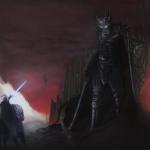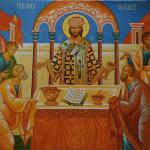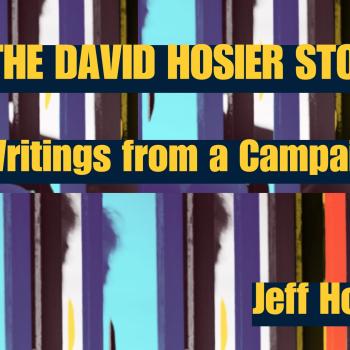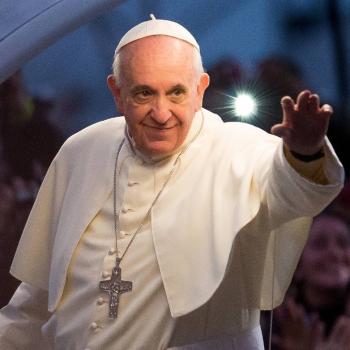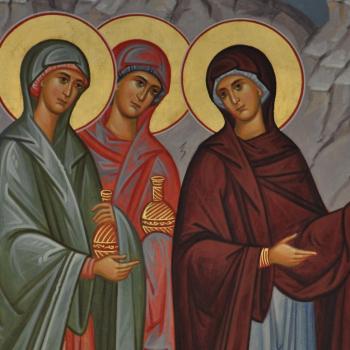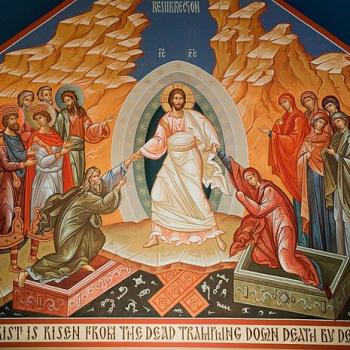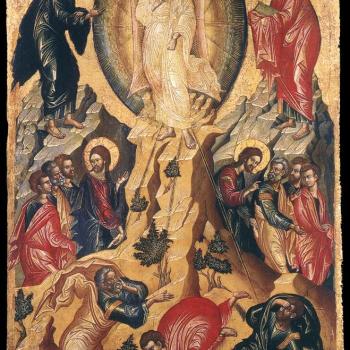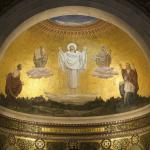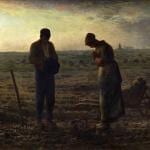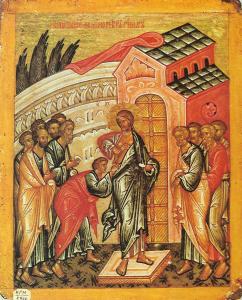
Christ’s resurrection from the dead was more than a simple historical event. This is why it is wrong to look at it from a merely historical standpoint. Historians will not be able to say much about the event itself. To be sure, there was a historical side to it, but to limit it to a mere historical event will misunderstand the event itself. It is an eternal event. The historical aspect of it is remembered every year as we celebrate Easter Sunday, but even then, every year we are also shown its transcendent qualities by the way Easter is celebrated as an octave (eight days). The whole week after Easter Sunday, and the Sunday after Easter, all come together to bring to us that Easter event, with the culmination of it being shown in in the way the Apostle Thomas experienced the resurrected Christ for himself.
Not all of the Apostles, not all of Christ’s followers, experienced the resurrected Christ on the “day” of the resurrection itself. Indeed, most of them did not. But each time they experienced the resurrected Christ, they experience the one same transcendent event. Similarly, when we experience it ourselves, we experience the same event as they did, putting us, therefore, in a similar situation with his early followers, especially, of course with Thomas. For we all need something to help us in our faith. We can believe, we can have faith, and yet find our beliefs challenged with all kinds of doubt. Thomas shows us this is fine, indeed, in Scripture, he can be seen as standing in for us. This is not to say that what we have in Scripture is a false representation of what Thomas himself went through and experienced, but rather, through his experiences, he can be seen to represent what so many people experience in relation to their faith. Scripture presents him and his experience to help us be drawn in and see ourselves in Thomas, though in a way to tell us that our own apprehension of the resurrection will be different:
Now Thomas, one of the twelve, called the Twin, was not with them when Jesus came. So the other disciples told him, “We have seen the Lord.” But he said to them, “Unless I see in his hands the print of the nails, and place my finger in the mark of the nails, and place my hand in his side, I will not believe.” Eight days later, his disciples were again in the house, and Thomas was with them. The doors were shut, but Jesus came and stood among them, and said, “Peace be with you.” Then he said to Thomas, “Put your finger here, and see my hands; and put out your hand, and place it in my side; do not be faithless, but believing.” Thomas answered him, “My Lord and my God!” Jesus said to him, “Have you believed because you have seen me? Blessed are those who have not seen and yet believe” (Jn. 20:24-29 RSV).
We can encounter the resurrected Christ in many ways, including in the mysteries of the church, like the eucharist. We can also do so in prayer, and all kinds of mystical experiences. What is important for us to realize is that we can and will approach Christ, and when we do so, we will encounter him in his glory, and not in his historical or physical presence. During his temporal ministry, those who came to him could touch him and address him as any other normal person bound by the laws of physics. But this was no longer the case in the resurrection. Thus, while the Apostles first experienced Christ with a mere physical presence, their encounter with the resurrected Christ was with a transformed, “spiritualized” body: he transcended physical laws, they no longer were in effect, as can be seen in the way he could suddenly appear in front of them, with physical objects like walls no longer serving a barrier to his movement.
Our apprehension of the glorified, resurrected Christ will be easy to explain or understand. Confusion surrounding the eucharist, and how to explain the real presence, demonstrates how difficult this is. What is important, is that even if we do not properly understand the experience, we still benefit from it. Grace is being shared whether or not we understand what it is we are experiencing, and with that grace, we are slowly being transformed and made ready for our enlightenment, when eventually we will come to apprehend and understand what we do not yet understand.
The resurrection is a transcendent event, one which includes temporal particulars without being bound by them. We should not try to understand it as simple history. It isn’t. We can look at it in a historical fashion, but when we do so, we will strip it of many of its qualities. It is like drawing a two-dimensional sketch of a four-dimensional object. The representation can give us a semblance of the reality, but it will ultimately lose out much of that reality itself. Thus, we are shown the transcendence of the resurrection event by the way we celebrate it on eight days. Why eight? Because the resurrection is said to be on the “eighth day,” that is, a day beyond the normal seven days of the week, showing us that it transcends normal time, even as it is said to represent its completion or end. We are included in the event, as the event is eternal, and so touches all time and space. The event is able to be experienced throughout all history, though it will be experienced in a wide variety of ways. The event will never end, which is why in the eschaton, we will see and experience it in all its glory, even as we will then be able to see all time and space and understand how it was all touched by and influenced by the Paschal event.
Stay in touch! Like A Little Bit of Nothing on Facebook.
If you liked what you read, please consider sharing it with your friends and family!
N.B.: While I read comments to moderate them, I rarely respond to them. If I don’t respond to your comment directly, don’t assume I am unthankful for it. I appreciate it. But I want readers to feel free to ask questions, and hopefully, dialogue with each other. I have shared what I wanted to say, though some responses will get a brief reply by me, or, if I find it interesting and something I can engage fully, as the foundation for another post. I have had many posts inspired or improved upon thanks to my readers.


